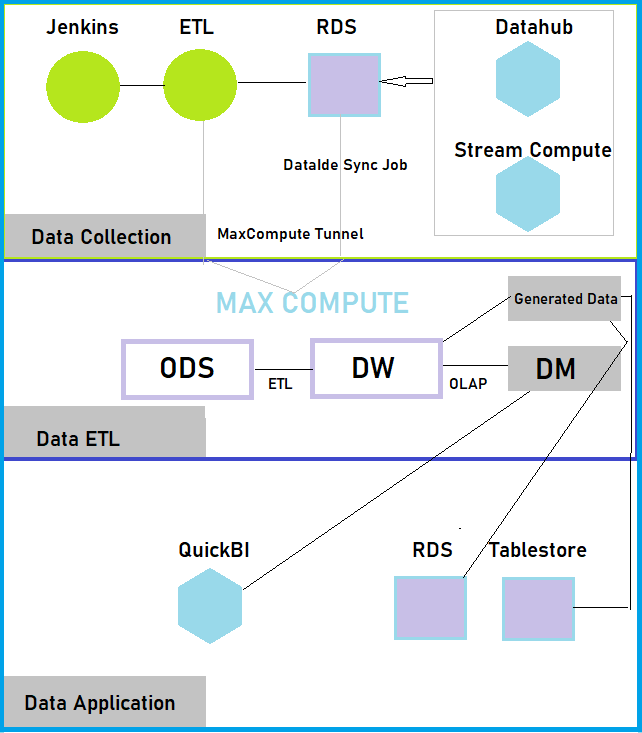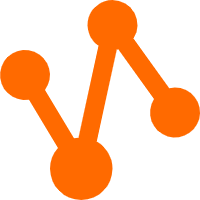By Shantanu Kaushik
Data warehousing as a concept and architecture goes back to the 1980s. It was initially developed to manipulate or transform data for better decision-making to add to the overall business value. Data warehouses are used to store data from different sources for data processing, analytics, and other types of research or consolidation.
Alibaba Cloud introduced MaxCompute as the computing platform for large-scale data warehousing. It is a fully-managed service that takes away the need for any O&M associated with the service.
Warehouses are structures to store objects from different sources. This could be a short-term or long-term storage system depending on supply and demand. Data warehousing is all about storing data from different sources. This data is processed to be stored in a singular format based on what the data warehouse supports. Data warehousing is among the most essential components of business intelligence, which constitutes the total operational system of data analytics. Data warehousing takes care of the extraction and transformation of data to be sent for analysis.
Data warehouses store historical data that is different from general or operational data used for daily operations. Historical data is among the most useful data that is collected and stored from different sources. It represents functionality and operations analysis spanning a large packet of time.
Data warehouses are big storage giants for data. Designing and maintaining a data warehouse takes specific strategies, resources, and collaboration. One of the major factors that affect the operations of a data warehouse is your cloud partner and a solution that can be customized to suit your needs. Alibaba Cloud has a number of solutions to work with data analytics and the cloud. MaxCompute takes care of all the challenges associated with data warehousing.
Let’s take a look at some of these challenges:
Data that comes from various sources will reflect inconsistencies. If these inconsistencies are too much, it will directly affect the data quality. Within a data warehouse, you need to maintain certain data quality to maintain a perfect or near-perfect raw data stream for data analytics to add to the overall business intelligence scenario.
Critical decisions are based on data that ensure future success. Data testing is a big challenge since the datasets are large and require a strong infrastructure.
A data warehouse has to be designed and managed according to the business demands and applied strategy. The solutions need to be customized and in-sync with business demands to gather good performance from your data warehouse and enable higher value extraction from your data for data analytics.
Data Mining has been increasing ten-folds every year. An increase in power and demand has made this area susceptible to privacy concerns. Multiple sources for data coming from independent contributors has to pass through the layers of security and privacy concern to make sure it doesn’t affect the overall business productivity and analytics.
Alibaba Cloud created MaxCompute to enable large-scale data warehousing needs. MaxCompute provides a stable, secure, high-performing, and scalable computing engine.
The traditional software industry became obsolete with the ever-increasing size of data. Alibaba Cloud created MaxCompute to overcome this and all of the data warehousing challenges. It was designed to provide computing power to process and store large amounts of structured data and enable precise data analytics and data modeling solutions.
Let’s take a look at the workflow of Alibaba Cloud MaxCompute on the chart below:

MaxCompute supports a distributed computing model that enables easier handling of large datasets compared to an overloaded single server. Since it is a fully-managed service, users don’t need to know complex backend concepts or how to manage it. MaxCompute takes care of all that with any O&M associated with it and provides a comprehensive and seamless experience with data warehousing and analytics.
MaxCompute provides seamless integration with DataWorks. With this integration, data synchronization, workflow design, data development, and management are shared across the Alibaba Cloud analytics platform. MaxCompute provides many computing models and supports APIs to fulfill any data analytics demands.
MaxCompute supports various computing models:
MaxCompute can provide computing for exabytes of data with anything more than 100GB.
Alibaba Cloud has implemented MaxCompute in their data warehouses for over a decade. MaxCompute provides a multi-tier and multi-layer sandboxing service along with permission management and monitoring.
Alibaba Cloud MaxCompute provides an elastic and scalable service that can provide job-level resource management. According to the presented need, MaxCompute can automatically increase or decrease resources, such as ECS, OSS, and network systems. This elasticity of operations and no added O&M reduce the associative operation costs drastically.
MaxCompute enables high concurrency data uploads and downloads using the MaxCompute data tunnel transmission service. This data transmission service supports terabytes of import and export data daily.
Data Tunnel is most useful when performing batch imports or when using historical data (history data tunnel.) You can use the tunneling functionality with a Java API and control the system with a MaxCompute client.
To upload real-time data, MaxCompute uses DataHub, which features low latency operations. With DataHub, you can enable incremental data imports to maintain a sync between the data center and the cloud.
Alibaba Cloud Data Analytics solutions are well integrated. MaxCompute and DataWorks both feature deep integration to provide data warehousing and big data functionality. DataV is used to visualize data for the businesses to understand the presented data easily and efficiently.
Alibaba Cloud MaxCompute is among the best data warehousing solutions available. It caters to more than 16 countries and can provide a wide variety of situational data warehousing. In the next article of this series, we will talk about DataV and how it adds to the overall business value.
Real-World Implementation of Data Analytics with Alibaba Cloud: DataV and Visualization (Part 5)

2,597 posts | 773 followers
FollowAlibaba Clouder - January 6, 2021
Alibaba Clouder - January 6, 2021
Alibaba Clouder - January 6, 2021
Alibaba Clouder - January 8, 2021
Alibaba Clouder - March 31, 2021
Rupal_Click2Cloud - December 15, 2023

2,597 posts | 773 followers
Follow Big Data Consulting for Data Technology Solution
Big Data Consulting for Data Technology Solution
Alibaba Cloud provides big data consulting services to help enterprises leverage advanced data technology.
Learn More MaxCompute
MaxCompute
Conduct large-scale data warehousing with MaxCompute
Learn More Big Data Consulting Services for Retail Solution
Big Data Consulting Services for Retail Solution
Alibaba Cloud experts provide retailers with a lightweight and customized big data consulting service to help you assess your big data maturity and plan your big data journey.
Learn More Data Security on the Cloud Solution
Data Security on the Cloud Solution
This solution helps you easily build a robust data security framework to safeguard your data assets throughout the data security lifecycle with ensured confidentiality, integrity, and availability of your data.
Learn MoreMore Posts by Alibaba Clouder
Start building with 50+ products and up to 12 months usage for Elastic Compute Service
Get Started for Free Get Started for Free